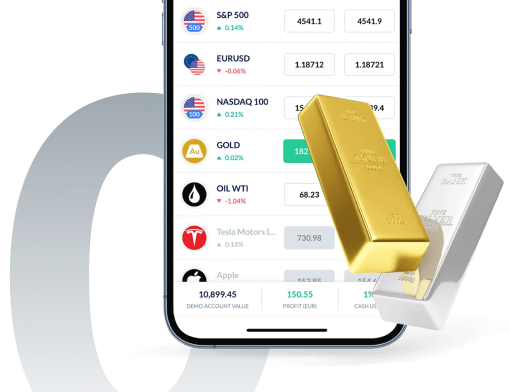Understanding UCITS (Undertakings for Collective Investment in Transferable Securities) is essential for traders and investors navigating the European investment landscape. This article explains the concept of UCITS, focuses on UCITS ETFs, provides an example, and discusses their importance, advantages, and disadvantages in the trading world.
Trade Demo: Real trading conditions with zero risk
Trade risk-free on Skilling’s award winning platforms with a 10k* demo account.
71% of retail CFD accounts lose money.

What does UCITS mean?
UCITS is a regulatory framework of the European Union that allows for the sale of cross-Europe mutual funds. UCITS funds are perceived as safe and well-regulated investment products, making them popular among investors seeking diversified, liquid, and transparent investment options.
UCITS funds are designed to offer investors a high level of protection. They must adhere to strict rules regarding the diversification of their portfolio, liquidity of assets, and use of leverage. These regulations ensure that UCITS funds limit their risk exposure and provide a transparent investment environment for their participants.
What does UCITS ETF mean?
A UCITS ETF is an Exchange-Traded Fund that complies with the UCITS regulations. These ETFs combine the benefits of UCITS funds with the flexibility and liquidity of ETFs.
UCITS ETFs are traded on stock exchanges just like shares, offering real-time pricing and the ability to buy or sell throughout the trading day. They provide investors with exposure to a wide range of asset classes, including stocks, bonds and commodities, while adhering to the stringent UCITS regulatory standards. This makes them an attractive option for investors looking for transparent and diversified investment products.
Example of UCITS ETF
To illustrate the concept of a UCITS ETF, let's consider a practical example.
"Imagine a UCITS ETF that tracks the performance of the EU Stocks 50 Index, which comprises 50 major blue-chip stocks from the Eurozone. This ETF provides investors with exposure to a broad range of sectors across different European countries, adhering to UCITS regulations to ensure diversification and risk management. Investors can buy or sell shares of this ETF on the stock exchange, benefiting from its liquidity and real-time pricing."
Why are UCITS important for traders?
UCITS funds, particularly UCITS ETFs, hold significant importance for traders and investors in the European markets.
- Risk-adjusted investments: UCITS funds offer a safer investment avenue due to their strict regulatory standards.
- Diversification: They provide an easy way to diversify portfolios across various asset classes and geographical regions.
- Liquidity: UCITS ETFs offer the added advantage of liquidity, similar to stocks, making them suitable for both long-term investing and short-term trading strategies.
- Transparency: The regulatory framework ensures high levels of transparency in fund operations and holdings.
What's your Trading Style?
No matter the playing field, knowing your style is the first step to success.

Advantages and disadvantages of UCITS
Advantages:
- Investor protection: High regulatory standards offer strong investor protection.
- Liquidity and flexibility: UCITS ETFs provide ease of trading with the added benefit of diversification.
- Transparency: Regular disclosure requirements ensure investors have a clear understanding of where their funds are invested.
Disadvantages:
- Costs: UCITS funds can have higher costs due to compliance and regulatory reporting requirements.
- Investment restrictions: Strict investment rules might limit the fund's ability to take advantage of certain market opportunities.
- Performance constraints: The focus on risk management might lead to conservative fund strategies, potentially limiting higher returns.
Summary
In summary, UCITS and UCITS ETFs represent key components of the European investment framework, offering traders and investors regulated, transparent, and diversified investment options. While they provide the benefits of safety, liquidity, and transparency, traders should also be aware of the higher costs and potential performance constraints due to strict regulatory compliance.
Understanding UCITS is essential for anyone involved in the European financial markets, as they offer a unique blend of protection and investment opportunities.











